Justanormalgeek1 - Justanormalgeek

More Posts from Justanormalgeek1 and Others


Forgive me.
Too true 🤣
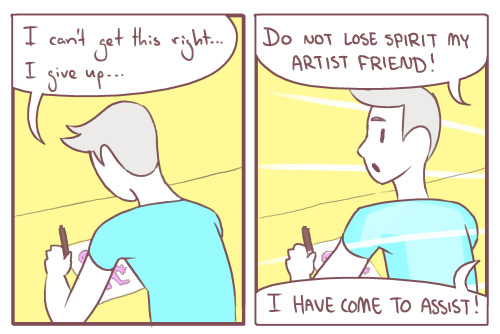

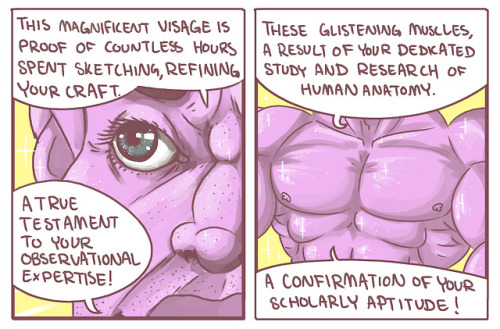
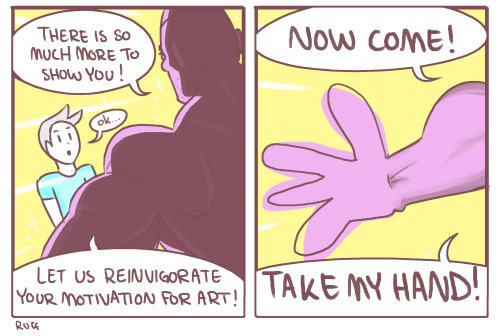

Yeah no. I’m ace and proud, as well as very socially anxious—I just come here for the fandom and escapism ☺️
Dear friends of Tumblr,
Today at my school we had an assembly about internet predators and when I had said that most of my true friends are over the internet and they gave me a lecture about how “I don’t know who I’m talking to” blah blah. So please, if you aren’t a predator in any way, please reblog so i can prove a point.
cliché but classic trope: when the person who almost died wakes up in a hospital bed, looks around and sees the object of their affection sleeping uncomfortably in the chair next to them because they haven’t moved in days.
still not over how much I love this

Happy International Asexuality Day!!
💚💜♠️ sending so much love to any tumblr folk who are on the asexual &/or aromantic spectrums like me. ♠️💜💚
♠️What is Asexuality?♠️
An Asexual is a person who rarely or never experiences sexual attraction. They are not drawn to people sexually and do not feel compelled to act on attraction to others in a sexual way. Asexuality does not preclude you from experiencing other types of attraction (including romantic attraction) to people of the same or different gender to yourself, or define whether you want to be in a committed relationship.
💜Why is awareness important? 💜
An absence of attraction is much harder to define than a presence; and lack of awareness means many people have no idea that there are words to describe their experiences or others who feel the same. While the term has been in common use since the 1960s, many people are well over the age of 25 when they first hear the word - especially if they experience romantic attraction to the opposite gender and haven’t had much exposure to the broader LGBTIQAP+ community. When you’re told all of your life that romantic feelings about someone are inextricably linked to sexual attraction it can be confusing when your experiences don’t seem to match. It can also be hard to tell what is hyperbole and what are thoughts that allosexual (the opposite of asexual) people have the intention of doing?
There is are strong social and cultural messages which use the development of sexual thoughts, sexual relationships and having children as markers of age and maturity. It can be difficult to express a lack of sexual desire without being invalidated or challenged by the people around you or your own built in expectation that sex is fundamental to being human. Are you medically or psychologically unwell? Are you repressed? Broken? Prudish? A late bloomer? Will this “all make sense” when I meet “the right person”?
While most identities on the LGBTIQAP+ spectrum are becoming better protected from medicalisation and psychiatric diagnosis - Asexuality has a long way to go.
It is still very common for people who are questioning or on the Asexuality spectrum to be offered medical testing and treatment aimed at curing their Asexuality. Most GPs still routinely recommend blood tests to check hormone levels, assessment for depression or other mental illnesses, recommend counselling or prescribe medication to boost libido.
.
♠️Celibacy Vs Asexuality♠️
Celibacy is like being on a diet. You still want to have sex and have sexual thoughts about others but are choosing not to act on them at that time. Whether it’s based on your beliefs or availability of a suitable partner varies but that desire is still present even if intentionally suppressed.
Asexuality is like not experiencing hunger because you’re already eaten enough. You don’t have sexual thoughts about others or feel compelled to act on them.
💜Attraction Vs Libido💜
Libido is typically the amount that you think about sex and how much you want to engage in sexual activities either partnered or solo. Libido is on a spectrum for people of all sexual orientations. They normally range from high to low. Libido can fluctuate and change over the lifespan and it can be influenced by hormone levels as well as some medications.
Attraction is usually whether your libido is directed at a particular person or type of person. Attraction can also be seen as the extent to which you want to act on sexual thoughts about a particular person.
Asexual people can and do experience a range of libidos from high to low. However they do not experience attraction, therefore are less likely to feel compelled to act on it and rarely associate it with a specific person.
♠️Attitudes towards Sex♠️
Asexuality is a wide spectrum, individual wants and needs vary but all are valid and normal.
In broad terms: Some asexuals are sex positive, they may not experience hunger but still get pleasure out of sharing a meal with someone. Some asexuals are ambivalent towards sex, it’s something they can take or leave. Some asexuals are completely or partially repelled by the idea of personally participating in sexual activity with a partner.
Resources:
Asexuality Visability & Education Network (AVEN) www.Asexuality.org
‘Finding Asexuality in the Archives’ by Michael Waters (Article on the history of Asexuality)
‘Ace: What Asexuality Reveals About Desire, Society, and the Meaning of Sex’ by Angela Chen (Nonfiction book) http://www.angelachen.org/ace.html
The Invisible Orientation: An Introduction to Asexuality by Julie Sondra Decker (Nonfiction Book)
A-Ok Podcast (30-60 min interviews with people on the Asexual &/or Aromantic Spectrums) https://www.aokpod.com
There are a lot of fictional books for adults and teens with asexual characters & if anyone is interested I can provide links 😊


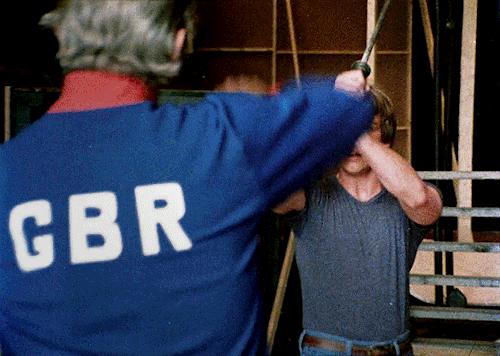

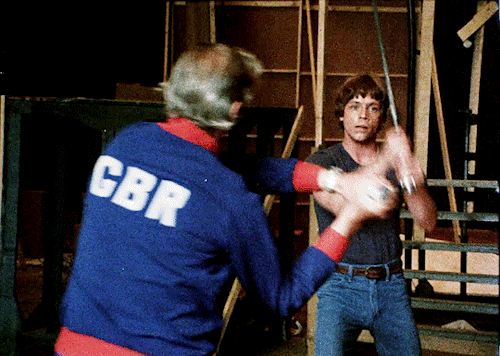
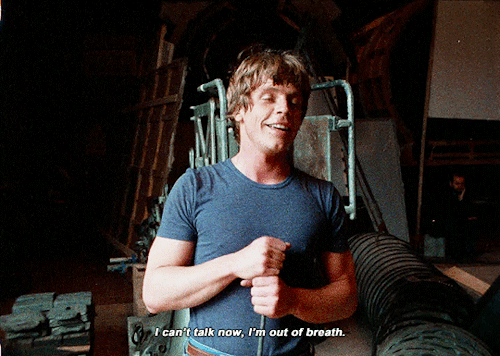
“This was the most physically taxing of all the film because of the lightsaber duels. Everytime I wasn’t shooting, I was rehearsing. Something that took weeks and weeks to shoot, even though it only lasts a few minutes on film. So it taxed me to the limit.”
MARK HAMILL “Star Wars: Episode V - The Empire Strikes Back” BTS › 1980






Sexuality is fluid and it changes. Maybe in the future I will feel different and that’s okay. It doesn’t mean it was just a phase. It doesn’t mean those feelings were invalid. It just means those feelings changed. That’s life.
-
 5n0w1ng liked this · 3 months ago
5n0w1ng liked this · 3 months ago -
 d3m0nbun reblogged this · 3 months ago
d3m0nbun reblogged this · 3 months ago -
 murasaki-rose reblogged this · 4 months ago
murasaki-rose reblogged this · 4 months ago -
 annaiog0x liked this · 6 months ago
annaiog0x liked this · 6 months ago -
 gothdietcoke reblogged this · 7 months ago
gothdietcoke reblogged this · 7 months ago -
 constructedparadox reblogged this · 8 months ago
constructedparadox reblogged this · 8 months ago -
 luly902 liked this · 9 months ago
luly902 liked this · 9 months ago -
 loresmithy reblogged this · 9 months ago
loresmithy reblogged this · 9 months ago -
 1sleepdeprived reblogged this · 9 months ago
1sleepdeprived reblogged this · 9 months ago -
 ratterpatter liked this · 9 months ago
ratterpatter liked this · 9 months ago -
 mof17 reblogged this · 9 months ago
mof17 reblogged this · 9 months ago -
 mof17 liked this · 9 months ago
mof17 liked this · 9 months ago -
 cocoreh liked this · 9 months ago
cocoreh liked this · 9 months ago -
 rat-from-hell123 reblogged this · 9 months ago
rat-from-hell123 reblogged this · 9 months ago -
 rat-from-hell123 liked this · 9 months ago
rat-from-hell123 liked this · 9 months ago -
 drbutton liked this · 9 months ago
drbutton liked this · 9 months ago -
 tom-hossain-minis liked this · 9 months ago
tom-hossain-minis liked this · 9 months ago -
 3000-200-grains-of-salt reblogged this · 9 months ago
3000-200-grains-of-salt reblogged this · 9 months ago -
 adudelol-reblogs reblogged this · 9 months ago
adudelol-reblogs reblogged this · 9 months ago -
 estrogenfool liked this · 9 months ago
estrogenfool liked this · 9 months ago -
 trasho-pando2011 reblogged this · 9 months ago
trasho-pando2011 reblogged this · 9 months ago -
 craftykit1 reblogged this · 9 months ago
craftykit1 reblogged this · 9 months ago -
 craftykit1 liked this · 9 months ago
craftykit1 liked this · 9 months ago -
 pestowitch liked this · 10 months ago
pestowitch liked this · 10 months ago -
 blanks-bullshit reblogged this · 11 months ago
blanks-bullshit reblogged this · 11 months ago -
 mytroubledart reblogged this · 1 year ago
mytroubledart reblogged this · 1 year ago -
 mytroubledart liked this · 1 year ago
mytroubledart liked this · 1 year ago -
 thegalacticidiot reblogged this · 1 year ago
thegalacticidiot reblogged this · 1 year ago -
 the-bearer-of-bad-ideas reblogged this · 1 year ago
the-bearer-of-bad-ideas reblogged this · 1 year ago -
 asperanna reblogged this · 1 year ago
asperanna reblogged this · 1 year ago -
 jester-writing reblogged this · 1 year ago
jester-writing reblogged this · 1 year ago -
 that0ddgal reblogged this · 1 year ago
that0ddgal reblogged this · 1 year ago -
 that0ddgal liked this · 1 year ago
that0ddgal liked this · 1 year ago -
 mx-modeus liked this · 1 year ago
mx-modeus liked this · 1 year ago -
 queen0funova reblogged this · 1 year ago
queen0funova reblogged this · 1 year ago -
 queen0funova liked this · 1 year ago
queen0funova liked this · 1 year ago -
 godhelpmeimdescendingintomadness reblogged this · 1 year ago
godhelpmeimdescendingintomadness reblogged this · 1 year ago -
 godhelpmeimdescendingintomadness liked this · 1 year ago
godhelpmeimdescendingintomadness liked this · 1 year ago -
 x-filesthemeplays reblogged this · 1 year ago
x-filesthemeplays reblogged this · 1 year ago -
 ghosts-are-people-too reblogged this · 1 year ago
ghosts-are-people-too reblogged this · 1 year ago -
 manusinlux liked this · 1 year ago
manusinlux liked this · 1 year ago -
 turtlegamemaster liked this · 1 year ago
turtlegamemaster liked this · 1 year ago -
 turtlegamemaster reblogged this · 1 year ago
turtlegamemaster reblogged this · 1 year ago -
 1singulargrape reblogged this · 1 year ago
1singulargrape reblogged this · 1 year ago -
 naydralikessoup liked this · 1 year ago
naydralikessoup liked this · 1 year ago -
 five-crows-in-a-trenchcoat reblogged this · 1 year ago
five-crows-in-a-trenchcoat reblogged this · 1 year ago -
 five-crows-in-a-trenchcoat liked this · 1 year ago
five-crows-in-a-trenchcoat liked this · 1 year ago -
 mietziekatz liked this · 1 year ago
mietziekatz liked this · 1 year ago